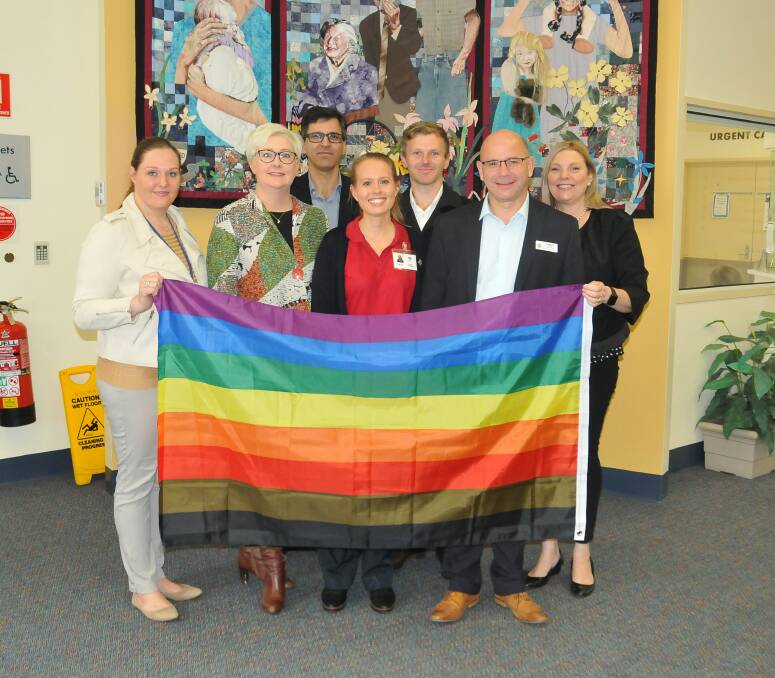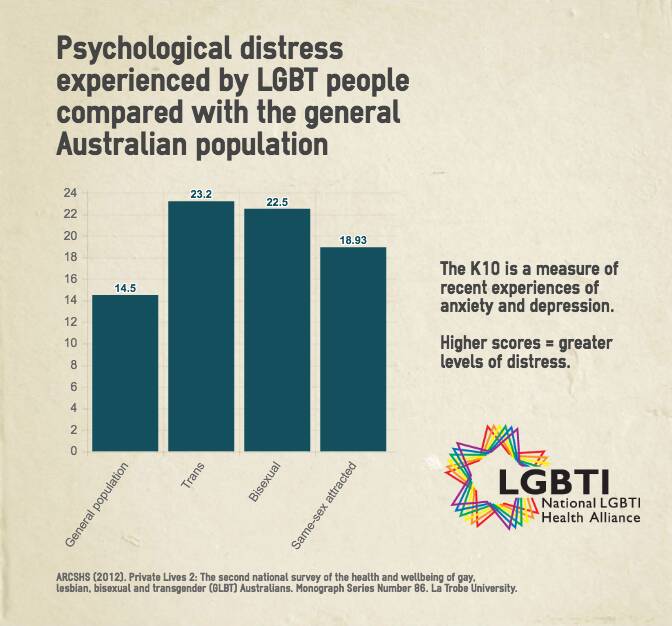
THE rainbow flag will be raised on Friday in both Ararat and Stawell for the first time in honour of IDAHOBIT Day.
Subscribe now for unlimited access.
or signup to continue reading
IDAHOBIT stands for International Day Against Homophobia, Transphobia, and Biphobia.
In Ararat, the flag will be raised at the council offices on Vincent Street at 2pm, followed by a video presentation in the foyer of the Ararat Gallery TAMA.
In Stawell the flag will be raised at 10am at the Pleasant Creek historical chambers on Longfield Street.
Tina Healy is a Stawell-based trans and gender diverse advocate, as well as a former peer support worker at Alphabet Soup, and said community support has really been improving.
In Horsham, the Wimmera Pride Project has been drawing in young LGBTQI+ members.
"They've got a strong youth focus," she said. "They have an event there each month called queer beers and it's ... well attended."
Ms Healy said the focus of health services in Stawell was "pretty amazing" too.
"Stawell Regional Health have set up their LGBTQI+ champions, and they ran a forum a couple of months ago where they brought the hospital staff together and talked about that intersection of what happens when LGBTQI+ people go into the health community, and what sort of reception they get," she said.
Ms Healy said the inaugural flag raising was one of the things to come out of that forum and will provide an important visual cue to young or isolated LGBTQI+ residents.
"It's really important for these kids to know they don't have to leave - they can stay here and there is an LGBTIQ+ community and they are not alone," she said.
Ms Healy also said that when she decided to move back to Stawell - the town her own family is from - friends asked her if she would feel safe in a country town, but this concern was misdirected.
"As an actual fact, country communities do community better," she said.
"In a big city you get lost, but country towns are used to coming together.
"They go 'well, here's something we've got to work through', and the LGBTIQ+ group we've got (the LGBTIQ Regional Network) just shows we have all of those services there saying 'how can we help, how can we support you?'"
The forum at Stawell Regional Health, which Ms Healy described as "transformative", was an example of that coming together in action.
"The sign of an organisation's commitment to the LGBTQI cause is when you see managers there," she said.
"We had the chief executive and senior management and nurses. They've got an ongoing commitment and they've shown a real openness to talking to us about the issues."
Ms Healy also praised the Stawell Neighbourhood House for its work.
"They auspiced a program we were running last year called Alphabet Soup, and they organised a trans and gender diverse camp here in the Grampians," she said.
"They put on a lunch and everyone raved about it."
Another organisation showing positive momentum was the Grampians Pyrenees Primary Care Partnership.
"It has linked up all the services in the area, and that's quite unique ," she said.
Local government has got on board too.
"The commissioner for the LGBTQI community came to Ararat a few weeks ago to talk about what's next for the community in the region," Ms Healy said.
"(Ararat mayor, Councilor) Peter Beales came along and stayed there the whole time, was fully involved and really supportive of the idea of doing the flag raising in Ararat."
Director of Primary and Community Care Rhys Duncan is leading the LGBTQI+ charge at Stawell Regional Health and said the organisation held the forum to try and improve LGBTQI+ accessibility to its services.
"We know the LGBTIQ community faces some barriers in accessing health services, so rather than us just saying 'these are the things we think we should do', why don't we ask the community what an accessible health service would look like to them," he said.
Statistically speaking, members of the LGBTIQ+ community are at significantly higher risk of mental health issues and suicide, making access to informed clinicians essential - especially when the needs of a trans-gendered person will likely differ dramatically from the needs of a bisexual, cis-gendered person.

The National LGBTI Health Alliance states on its website that 'compared to the general population, LGBTI people are more likely to attempt suicide in their lifetime, specifically:
- LGBTI young people aged 16 to 27 are five times more likely;
- Transgender people aged 18 and over are nearly eleven times more likely;
- People with an Intersex variation aged 16 and over are nearly six times more likely;
- LGBT young people who experience abuse and harassment are even more likely to attempt suicide;
- Lesbian, Gay and Bisexual people are twice as likely to have symptoms that the criteria for a mental health disorder in the past 12 months.
"We've started to develop an action plan, and we'll continue to work with them as we implement our action plan," Mr Duncan said.
"One thing we did hear from the community was that it's just knowing the health service is supportive of their community, and knowing that the clinicians understand the health needs of the LGBTQI+ community as well.
"One example is knowing that if it is gender diversity we're talking about, they'll be acknowledged and treated with equity."

